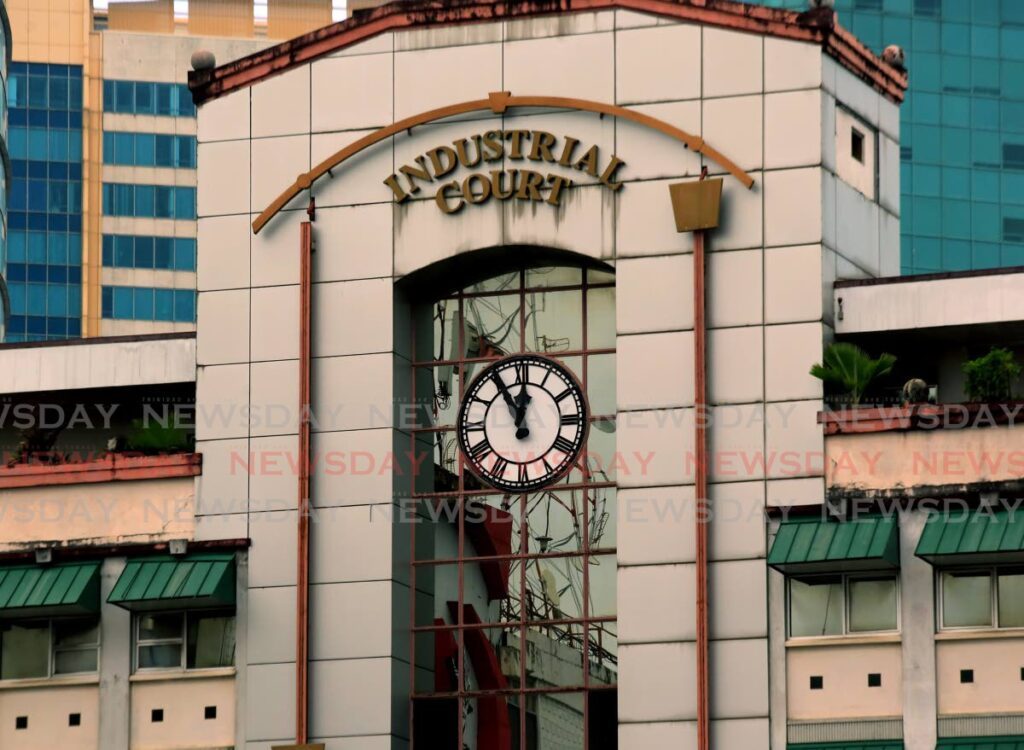Bank worker, union lose Privy Council appeal over membership

THE Judicial Committee of the Privy Council has dismissed the appeal of a former bank worker and the Sanctuary Workers’ Trade Union which challenged the decision of the Registration, Recognition, and Certification Board (RRCB) to deny access to the Industrial Court because the union did not have a bank account.
The ruling, delivered on January 3, concluded a legal battle stemming from Mitoonlal Persad’s dismissal by the RBC Royal Bank in January 2018. The appeal raised issues about union compliance with statutory requirements and the procedural fairness of the RRCB’s decision.
Persad wanted to pursue a trade dispute against his former employer over his dismissal/termination of his employment.
In November 2019, the Ministry of Labour issued a certificate of unresolved dispute and referred the issue of whether Persad was in good financial standing with the union to the board.
The RRCB had decided that Persad was not a "member in good standing" under the Industrial Relations Act, a prerequisite for accessing the Industrial Court.
The RRCB ruled he was not, citing the union’s failure to meet accounting standards, specifically the absence of a bank account to manage members' contributions.
The High Court initially overturned the board’s decision, deeming its reliance on a mandatory bank account requirement ultra vires.
However, the Court of Appeal reinstated the RRCB’s ruling, emphasising the necessity of sound accounting practices for transparency and fraud prevention.
The Privy Council found that the RRCB acted within its statutory jurisdiction and its decision-making process adhered to the principles of natural justice.
The law lords held that RRCB’s long-standing policy of requiring unions to maintain a bank account was reasonable and consistent with good public administration.
They also considered the union’s explanation for not having a bank account. Still, they said it did not satisfy the statutory requirement for sound accounting procedures under section 34(3) of the Industrial Relations Act.
“The Industrial Relations Act includes a mandatory restriction on those parties who can access the Industrial Court, by the imposition of the ‘member in good standing’ test in section 34(3).
“It is for the RRC Board to form a judgement on what constitutes 'sound accounting procedures and practices' as part of that test. The adoption of a general policy to aid decision-making in such a context is likely to be of assistance to all concerned.
“In this case, Practice Note No 2 represents the communication of that Policy.”
“It is clear from the preamble to the Practice Note that what follows is a list of records, documents and evidence to be produced by the trade union to satisfy the requirements of section 34(3). There was no misinterpretation involved in expecting to receive all of the documents listed.
“Where an administrative body has an unqualified discretion, it must act reasonably and its decisions can be challenged if there has been no real or genuine exercise of that discretion.
“While policies may differ in terms of their apparent flexibility or rigidity, their exercise must contemplate exceptions.
“In looking for evidence that fees and contributions of union members would be kept in a bank account, the RRC Board was adopting a policy that was, on the face of it, unobjectionable.
“The available evidence supports a conclusion that the underlying rationale of the policy was to eliminate the potential for fraudulent activities associated with money.
“Clearly, an audit trail of fees and contributions being received and held in a bank account would assist in allaying any concerns of that nature.”
In affirming the Appeal Court’s decision, the law lords held that the absence of a bank account, coupled with consideration of the explanation for that, constituted a sufficient basis for the determination that the requirements of section 34(3) of the IRA had not been satisfied.
Lords Reed, Sales, Stephens and Ladies Simler and Wise, who presided over the appeal, also held that the union was given multiple opportunities to address the board's concerns about accounting practices.
“This was clear from the correspondence…”
On the ouster clause argument raised by Persad and the union’s lawyers, the Privy Council affirmed that judicial review is limited to jurisdictional errors and breaches of natural justice, consistent with prior case law.
The apex court also emphasised that the ruling does not preclude recourse to ordinary courts for other remedies.
“Mr Persad’s general ability to access justice and challenge the decision of his former employer has not been negated by the RRCB’s decision.
“First, he was afforded the limited recourse to the courts to address any errors going to jurisdiction or breaches of natural justice formulated by the Court of Appeal.
“Secondly, the board’s decision does not preclude an application to the ordinary courts.”
King’s Counsel Anand Beharrylal, Omar Sabbagh, Kiel Taklalsingh and Stefan Ramkissoon, instructed by Sovereign Chambers in Trinidad and Tobago represented Persad and the union.
Robert Strang, instructed by Charles Russell Speechlys LLP of London, represented the RRCB at the Privy Council.

Comments
"Bank worker, union lose Privy Council appeal over membership"